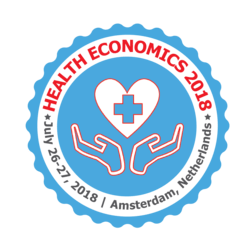
Ghobad Moradi
Kurdistan University of Medical Sciences, Iran
Title: Investigation of the socio-economic inequalities in preparation for disasters (having an emergency bag at home): Study of Iran Multiple Indicator Demographic and Health Survey (IrMIDHS) in 2010
Biography
Biography: Ghobad Moradi
Abstract
Introduction: Preparation for disasters leads to reduce the damage and timely response to disasters and greatly reduces the amount of damages and injuries. The aim of this study is to investigate the socio-economic inequalities in preparation for disasters.
Methods: This is a cross-sectional study. Sampling in this study was a randomized multistage stratified cluster sampling with equal clusters. A total of 112,667 people were sampled. Data was analyzed in two stages. Socio-economic inequalities were investigated using the methods of Concentration Index and Concentration Curve In the first stage, and the multilevel method was used to identify the role of determinants in the second stage.
Results: Of all participants in the study 2644 (8.93%) had emergency bags at home. Concentration Index was obtained CI=0.07[CI95% (0.05, 0.09)] for emergency bags at home that indicates having an emergency bag is higher in the higher socio-economic groups. The results of multilevel analysis show that there is a relationship between place of residence, gender, occupation, economic class, and the chance of having an emergency bag at home.
Conclusion: Inequality in preparation for disasters was in favour of well-off group and this inequality varies in different provinces. The economic-social class and the level of education, gender, place of residence, and occupation are the factors affecting the prevalence of traffic accidents, and these issues should be considered to reduce inequalities.

